+33 (0) 3 20 16 91 40
Water analyses laboratory

Your laboratory is a water analysis service provider, a local authority public laboratory or an Urban Wastewater Treatment Plant (WWTP) laboratory.
Your laboratory measures physico-chemical or microbiological parameters in water.
AGLAE provides you with a whole range of interlaboratory comparisons on different types of water.
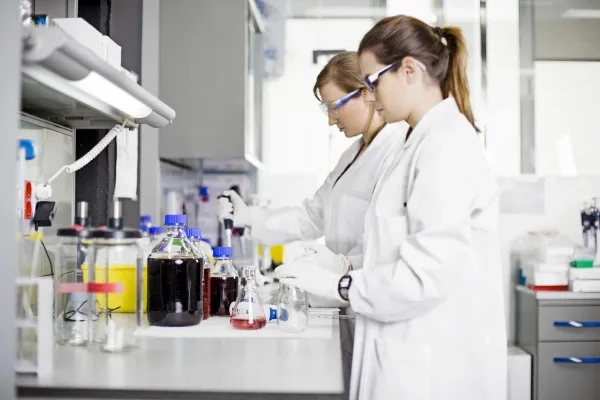
Water analysis framework
- Water analyses are part of the monitoring of water intended for human consumption ("drinking water"), surface water (lakes and rivers), groundwater or sea water.
- Tap water is monitored for microbiological, physico-chemical and radiological parameters to ensure that it complies with regulatory quality requirements and poses no risk to consumer health.
- In the case of a wastewater treatment plant, inlet (raw water) and outlet (treated water) analyses help to monitor discharges and the operation of the facilities. If the performance of the waste water treatment plants is not sufficient to eliminate all the pollutants, some of these substances are likely to be discharged (see water pollution).
It should be noted that depending on the type of water, water must comply with various quality criteria: physico-chemical parameters, organoleptic parameters (taste and odour for drinking water), microbiological parameters, parameters relating to undesirable substances and toxic substances.
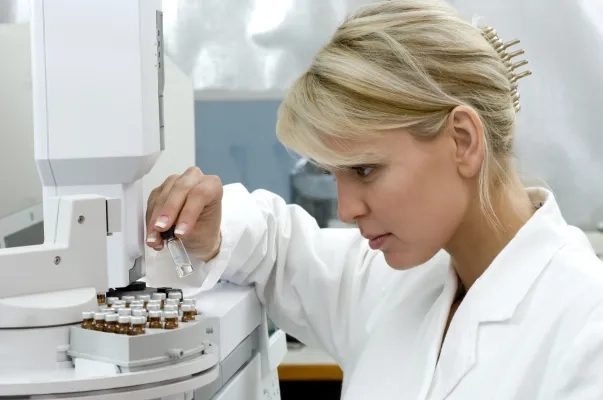
Your expectations in terms of Quality Control
As part of your accreditation to ISO 17025 and/or approval, your laboratory must meet the requirements of :
- accreditation related to water sampling, physico-chemical and microbiological testing
- approvals issued by the Ministry of Health to carry out sampling and analysis for water health control purposes
- approvals issued by the Ministry for the Environment to carry out analyses in the field of water and aquatic environments
You must ensure the validity of your results and monitor your performance by comparing it with the results of other laboratories.
As an urban wastewater treatment plant, you check your performance as part of your self-monitoring system.
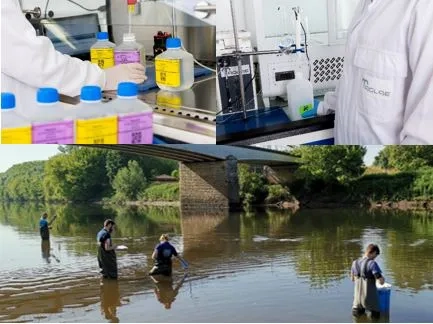
Which proficiency tests could be of interest to you?
Your laboratory is likely to be interested in the following categories of proficiency tests:

Feedback from laboratories
"Participating in round-robin tests in Germany and in France, I am very satisfied with AGLAE’s on-line results’ submission, short delays to receive detailed personalized reports and Excel summaries including my lab’s performance during the year. The statistical processing performed by AGLAE helps me in my daily life at the laboratory to compare the various analytical techniques. Besides, AGLAE is open to technical discussions and really pays attention to participants’ needs, adding parameters or even creating new tests to better meet our expectations."
Alfred Ewen, Head of department "drinking water laboratory”, MVV Netze GmbH, Mannheim (Germany)
"We have been working with AGLAE since 2012. The PT program is one of the most complete you could find, besides, I would like to remark the excellent personal attention they give us."
Núria Bodi Majó, Badalona’s Laboratory Quality Manager, Tecnoambiente (Spain)
Metals in waters

Water analysis service providers and industrialists measure out various metals on samples prepared by AGLAE. These analyses correspond to the monitoring of water intended for human consumption, surface water, sea water and the monitoring of discharges from wastewater treatment plants.
AGLAE provides 8 programmes in this category of interlaboratory tests on Metals in waters.
AGLAE estimates the analytical performance of participants, enabling them to improve the quality of their quantification of metals in water.
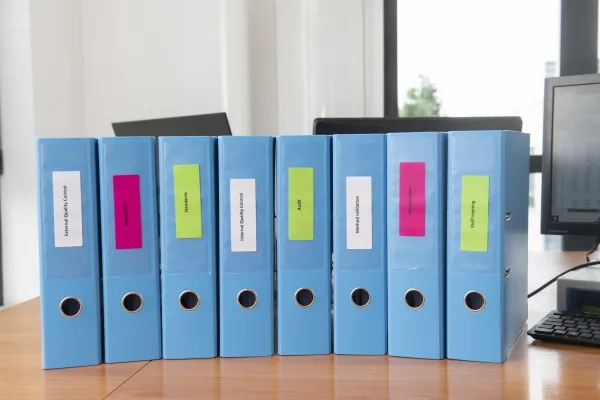
Why take part in "metals in waters" proficiency tests?
They are carried out as part of self-monitoring or regulatory controls. They enable part of the requirements to be covered:
- accreditation scopes related to physico-chemical analyses in waters (see Accreditation No. 1-1664)
- approvals issued by Ministries of Health to carry out sampling and analysis for water quality control purposes
- approvals issued by Ministries for the Environment to carry out analyses in the field of water and aquatic environments
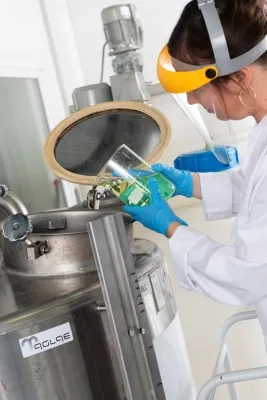
What types of waters does AGLAE provide in these proficiency tests?
- fresh water, public supply water, spring water, natural mineral water
- waste water entering or leaving urban treatment plants
- saline and brackish water
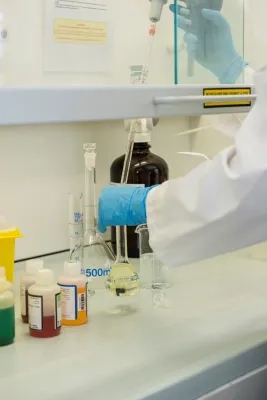
What analyses do the laboratories carry out?
Depending on the type of water, laboratories measure various metals, including heavy metals such as mercury, lead, cadmium, chromium, copper, arsenic and nickel, which are usually present in the environment in trace form.
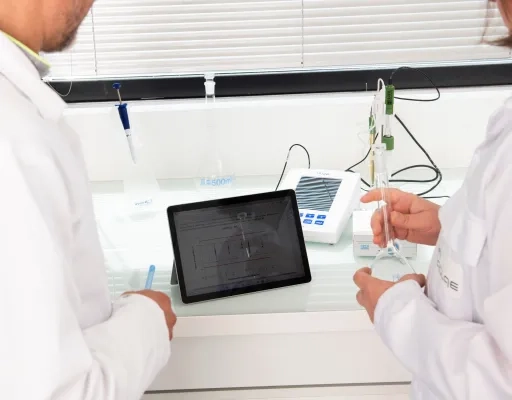
Added value of AGLAE "Metals in waters" proficiency tests
Depending on the methods used for metal analysis, differences in results are observed. AGLAE studies them and presents them in the test reports. These observations help laboratories to better interpret their analysis results.
AGLAE has published several studies on metals based on test observations:
- Differences between methods for metals in clean water
- Comparison of ICP/MS and other techniques for iron, titanium and mercury
- Comparison of mineralisation methods for iron and tin in wastewater
AGLAE proficiency tests are used not only to assess laboratory performance, but also to check their estimated measurement uncertainties and estimate the repeatability and reproducibility of their measurements.
AGLAE provides customised reports to laboratories, enabling them to focus on possible improvements to their analyses.
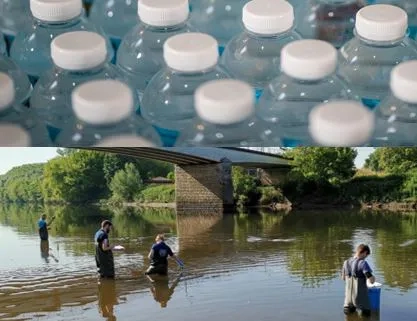
Other proficiency tests that may be of interest to you
AGLAE also offers to improve the quality of your measurements:
See all AGLAE's tests
Indexes in waters

Water analysis service providers and industrials measure various indexes on samples prepared by AGLAE. These analyses correspond to the monitoring of water intended for human consumption, surface water and the monitoring of wastewater treatment plant discharges.
⇒ AGLAE offers 4 programmes in this category of interlaboratory tests Indexes in waters.
AGLAE estimates the analytical performance of participants, enabling them to improve the quality of their analyses.
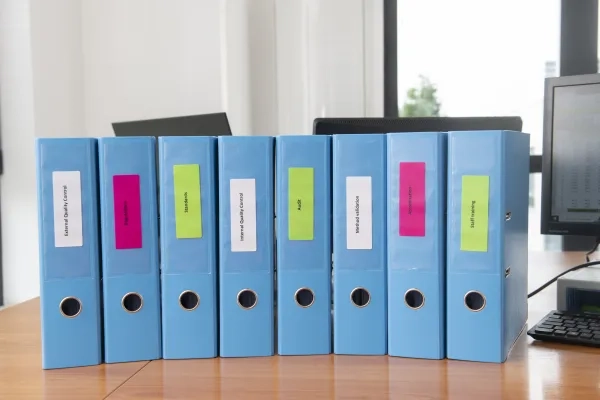
Why take part in "indexes in waters" proficiency tests?
They are carried out as part of self-monitoring or regulatory controls. They enable part of the requirements to be covered:
- accreditation scopes related to physico-chemical analyses in waters (see Accreditation No. 1-1664)
- approvals issued by Ministries of Health to carry out sampling and analysis for water quality control purposes
- approvals issued by Ministries for the Environment to carry out analyses in the field of water and aquatic environments
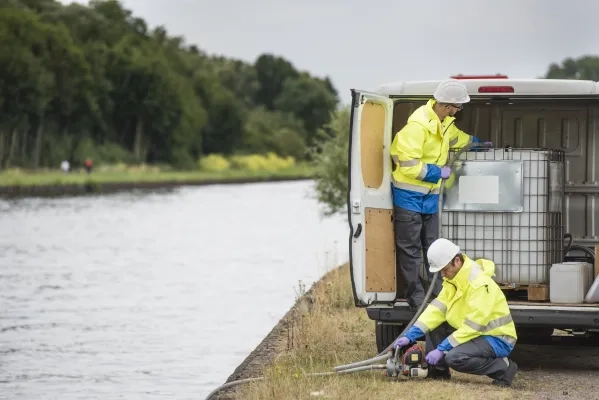
What types of waters does AGLAE provide in these proficiency tests?
- fresh water, public supply water, spring water, natural mineral water, surface water (lake, canal, pond)
- wastewater entering or leaving urban wastewater treatment plants
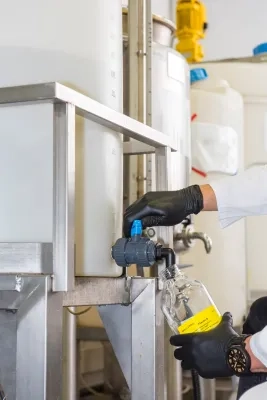
What analyses do the laboratories carry out?
Various indices are measured by the laboratories in this series of tests:
- total cyanides
- phenol
- anionic surfactant
- total hydrocarbons C10-C40
- volatile hydrocarbons C5-C9
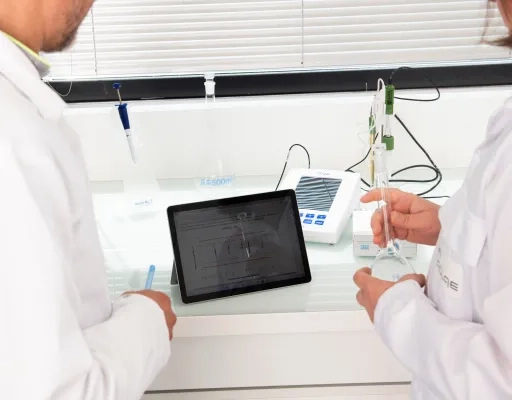
Added value of AGLAE "Indexes in waters" proficiency tests
Depending on the methods used to analyse the indexes, differences in results are observed. AGLAE studies them and presents them in the test reports. These observations help laboratories to better interpret their analysis results.
AGLAE has published a study on indexes resulting from tests observations: Anionic surfactant index, comparison of global analysis methods (spectrophotometry with or without flux).
AGLAE's proficiency tests are used not only to assess laboratory performance, but also to check their estimated measurement uncertainties and to assess the repeatability and reproducibility of their measurements.
AGLAE provides personalised reports to laboratories, enabling them to focus on possible improvements to their analyses.
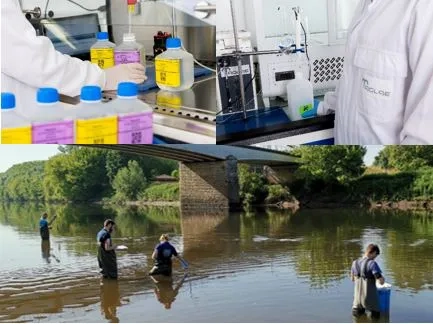
Other proficiency tests that may be of interest to you
AGLAE also offers to improve the quality of your measurements:
Check all AGLAE's tests
Chemistry in solid matrices

Environmental and materials analysis laboratories and industrial companies, such as cement works analyse "solid" samples such as sludge, soil and waste, prepared by AGLAE.
⇒ AGLAE provides 14 programmes in this category of interlaboratory tests "Chemistry in solid matrices".
AGLAE estimates the analytical performance of participants, enabling them to improve the quality of their analyses.
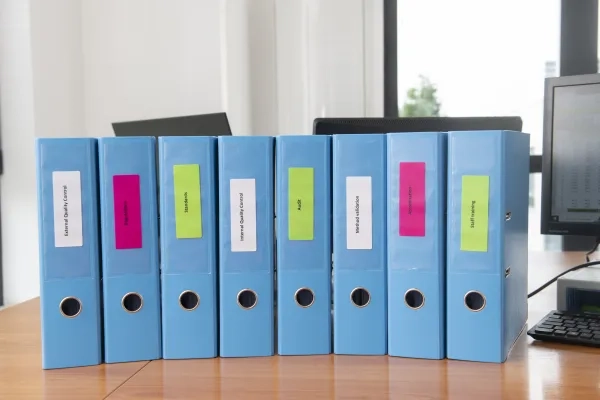
Why take part in "solid matrices" proficiency tests?
They are carried out as part of self-monitoring or regulatory controls. These tests cover some of the requirements of :
- accreditation for sludge and sediment analysis (see accreditation no. 1-1664)
- accreditation in the field of 'Energy, Heating, Air Conditioning and Water' - 'Solid Biofuels and Solid Recovered Fuels'.
- approvals issued by the Ministry for the Environment to carry out analyses in the field of water and aquatic environments
- legislation requiring the safety of bituminous mixes to be verified during all road works
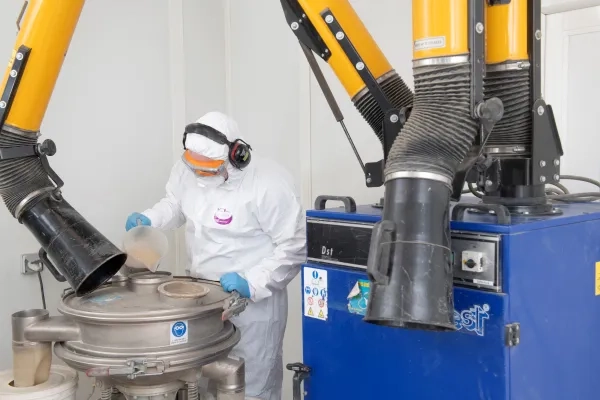
What types of matrices does AGLAE provide in these proficiency tests?
- marine, port or river sediments
- sludge from urban, industrial and sewage treatment plants, etc.
- polluted soil or industrial sites
- ash, clinkers, industrial or human activity residues
- bituminous waste
- solid recovered fuels (wood residues, paper, plastic, non-hazardous waste)
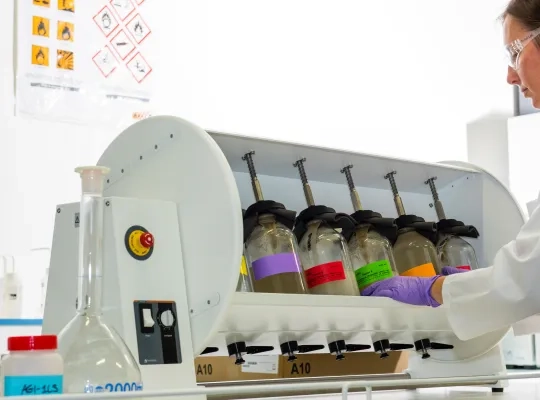
What analyses do the laboratories carry out?
Depending on the matrix, the participants analyse in particular :
- basic' physico-chemical parameters, i.e. parameters that characterise the physical and chemical quality of the matrix (including nitrogen, phosphorus and dry matter content, for example)
- metals such as chromium, manganese and tin
- cyanides, phenol index and hydrocarbons
- organic pollutants, including volatile organic compounds (VOCs) and polycyclic aromatic hydrocarbons (PAHs)
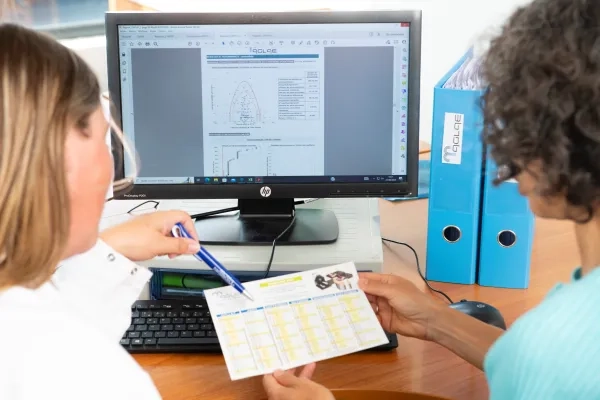
Added value of AGLAE "Solid matrix" proficiency tests
AGLAE provides samples adapted to solid matrices and carries out tests on raw and pre-treated materials.
- Tests on pre-treated material (dried, ground and sieved material) guarantee the presence of the parameters to be analysed and provide greater control over the analytical part of the analysis, which is the main source of uncertainty.
- Tests on raw material (dried material, lightly ground but not sieved) include the measurement uncertainty due to the sample pre-treatment phase, as in your routine analyses.
- Quality control materials are available for sludge, sediment and soil analyses.
In addition, depending on the methods used to analyse solid matrices, discrepancies in results are observed. AGLAE studies these and presents them in the test reports. These observations help laboratories to better interpret their analytical results.
AGLAE has published several studies on solid matrices based on test observations:
- Comparison of metal mineralisation methods on sediments and sludges
- Influence of sample pre-treatment during interlaboratory tests on solid matrices
AGLAE proficiency tests are used not only to assess laboratory performance, but also to check their estimated measurement uncertainties and to estimate the repeatability and reproducibility of their measurements.
AGLAE provides personalised reports to laboratories, enabling them to focus on possible improvements to their analyses.
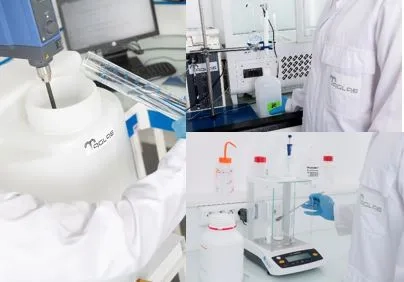
Other proficiency tests that may be of interest to you
AGLAE can also improve the quality of your measurements:
See all AGLAE's tests
Organic pollutants in clean waters

Water analysis service providers measure organic pollutants on samples prepared by AGLAE. These analyses correspond to the monitoring of water intended for human consumption, swimming pool water and surface water.
⇒ AGLAE provides 34 programmes in this category of interlaboratory tests "Organic pollutants in clean waters".
AGLAE estimates the analytical performance of participants, enabling them to improve the quality of their measurements on water.

Why participate in the "Pollutants in fresh waters" proficiency tests?
They are carried out as part of self-monitoring or regulatory controls. These tests cover some of the requirements of :
- accreditation scopes related to physico-chemical analyses in waters (see Accreditation No. 1-1664)
- approvals issued by Ministries of Health to carry out sampling and analysis for water quality control purposes
- approvals issued by Ministries for the Environment to carry out analyses in the field of water and aquatic environments
- the Water Framework Directive (WFD 2000/60/EC), which sets objectives for preserving aquatic ecosystems
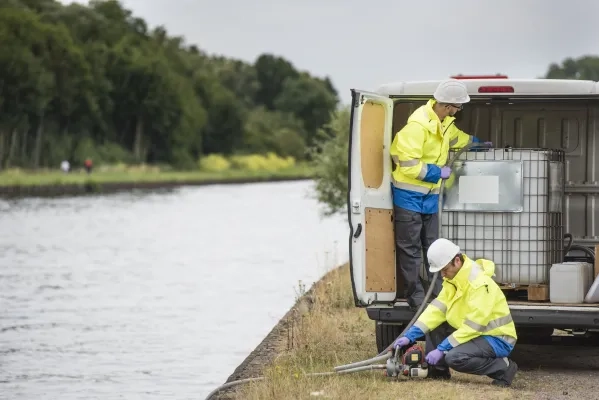
What types of waters does AGLAE provide in these proficiency tests?
- continental surface water: lake, canal, pond
- drinking water: tap water, spring water, non-typical natural mineral water
- swimming pool water
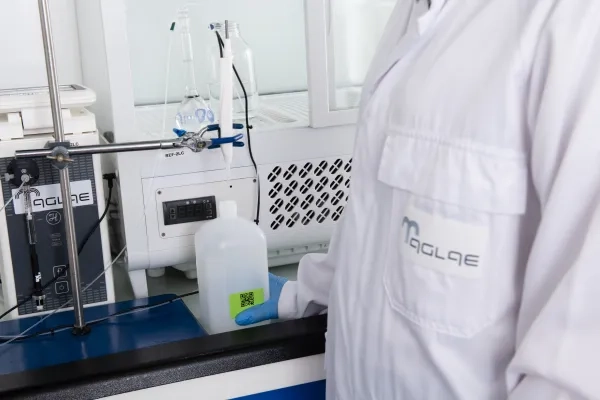
What analyses do the laboratories carry out?
Participants analyse a wide range of organic pollutants, including:
- Per- and polyfluoroalkyl substances, known as PFAS
- Volatile organic compounds (VOCs)
- Benzenes, toluenes, ethylbenzenes, xylenes (BTEX)
- Polycyclic aromatic hydrocarbons (PAHs), Polychlorinated biphenyls (PCBs)
- Pesticides and phytosanitary products (herbicides, insecticides, fungicides, etc.).
- Pharmaceuticals
- Trihalomethanes (THMs)
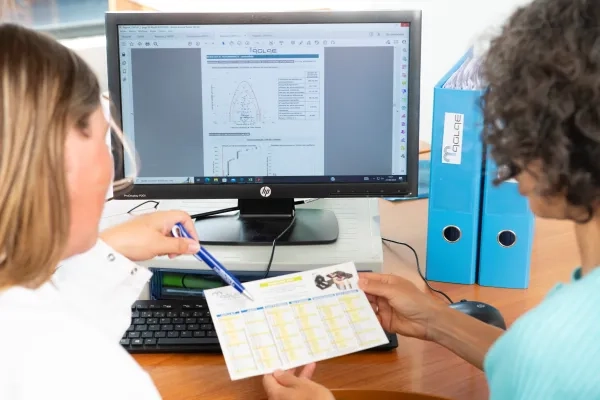
Added value of AGLAE "Pollutants in fresh waters" proficiency tests
Depending on the methods used to analyse micropollutants, differences in results are observed. AGLAE studies them and presents them in the test reports. These observations help laboratories to better interpret their analysis results.
AGLAE has published several studies on organic pollutants studies on organic pollutants based on test observations:
- Method differences for organic micropollutants in clean water
- Reliability of the determination of chloroacetamide metabolites
AGLAE proficiency tests are used not only to assess laboratory performance, but also to check their estimated measurement uncertainties and to assess the repeatability and reproducibility of their measurements.
AGLAE provides personalised reports to laboratories, enabling them to focus on possible improvements to their analyses.
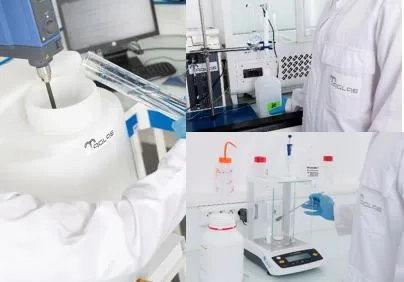
Other proficiency tests that may be of interest to you
AGLAE can also improve the quality of your measurements:
- Organic pollutants in wastewater
- Base parameters and indicators in water
- Metals in water
- Indexes in water
See all AGLAE's tests
Organic pollutants in waste waters

Water analysis service providers and industrials measure organic pollutants on samples prepared by AGLAE. These analyses correspond to the monitoring of wastewater treatment plant discharges.
⇒ AGLAE offers 21 programmes in this category of proficiency tests "Organic pollutants in waste waters".
AGLAE estimates the analytical performance of the participants, enabling them to improve the quality of their measurements on water.
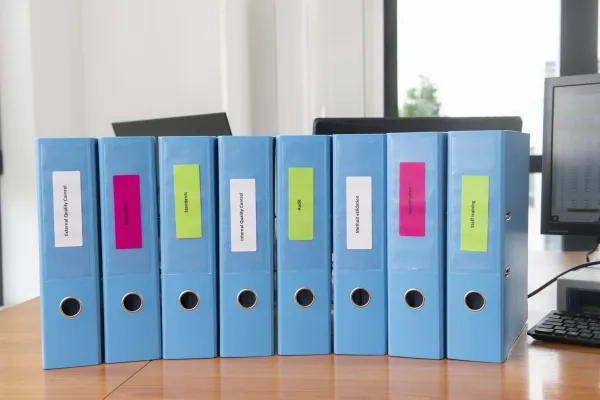
Why participate in the "Pollutants in waste waters" proficiency tests?
They are carried out as part of self-monitoring or regulatory controls. These tests cover some of the requirements of :
- accreditation scopes related to physico-chemical analyses in waters (see Accreditation No. 1-1664)
- approvals issued by Ministries for the Environment to carry out analyses in the field of water and aquatic environments
- the Water Framework Directive (WFD 2000/60/EC), which sets objectives for preserving aquatic ecosystems
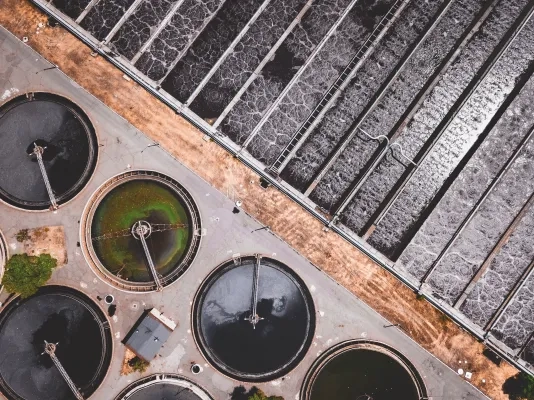
What types of waters does AGLAE provide in these proficiency tests?
- inlet wastewater from urban wastewater treatment plants (WWTPs)
- wastewater leaving urban wastewater treatment plants
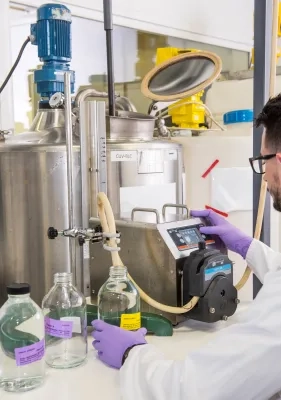
What analyses do the laboratories carry out?
Participants analyse a wide range of organic pollutants, including:
- Per- and polyfluoroalkyl substances, known as PFAS
- Volatile organic compounds (VOCs)
- Benzenes, toluenes, ethylbenzenes, xylenes (BTEX)
- Polycyclic aromatic hydrocarbons (PAHs), Polychlorinated biphenyls (PCBs)
- Pesticides, phytosanitary products (herbicides, insecticides, fungicides, etc.) and degradation residues
- Hexabromocyclododecane (HBCDD) and hexabromobiphenyl (HBB)
- Alkylphenol ethoxylates
- Trihalomethanes (THMs)
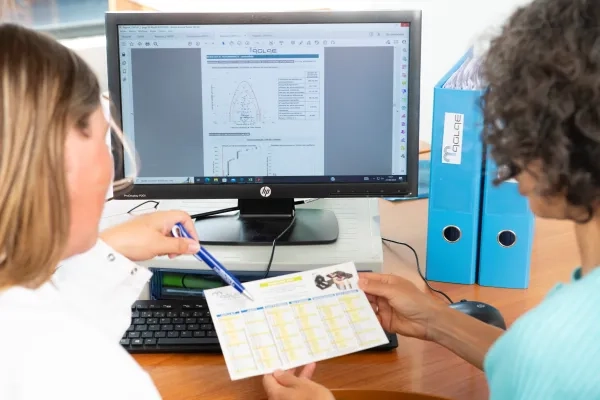
Added value of AGLAE "Pollutants in waste waters" proficiency tests
They cover a large number of organic pollutants.
AGLAE proficiency tests are used not only to assess laboratory performance, but also to check their estimated measurement uncertainties and estimate the repeatability and reproducibility of their measurements.
AGLAE provides personalised reports to laboratories, enabling them to focus on possible improvements to their analyses.

Other proficiency tests that may be of interest to you
AGLAE can also improve the quality of your measurements:
- Organic pollutants in clean waters
- Base parameters and indicators in water
- Metals in water
- Indexes in water
See all AGLAE's tests
Biology and ecotoxicology

Water analysis service providers and environmental research consultancies analyse samples supplied by AGLAE. These analyses correspond to the monitoring of aquatic environments or water intended for human consumption.
⇒ AGLAE provides 4 programmes in this category of "Biology and ecotoxicology" proficiency tests.
AGLAE estimates the analytical performance of participants, enabling them to improve the quality of their measurements.
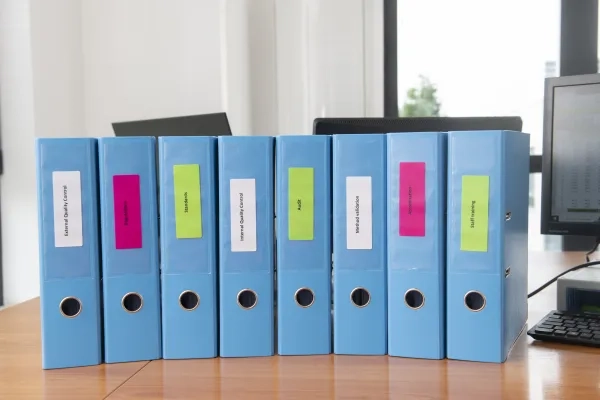
Why take part in the "Biology and Ecotoxicology" proficiency tests?
They are carried out as part of self-monitoring or regulatory controls. These tests cover some of the requirements of :
- accreditation scope of biological analyses of aquatic media (check AGLAE's accreditation Cofrac No. 1-1664)
- approvals issued by Ministries of Health to carry out sampling and analysis for water quality control purposes
- approvals issued by Ministries for the Environment to carry out analyses in the field of water and aquatic environments
- the Water Framework Directive (WFD 2000/60/EC), which sets objectives for preserving aquatic ecosystems
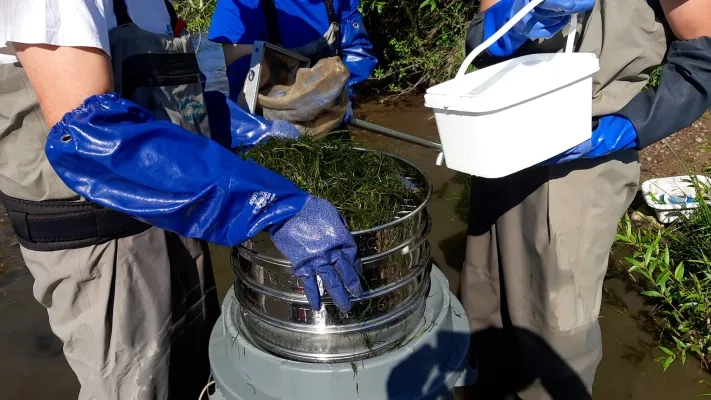
What types of samples does AGLAE provide in these proficiency tests?
- habitation of running waters
- plant effluent water
- sampling from running water
- water intended for human consumption
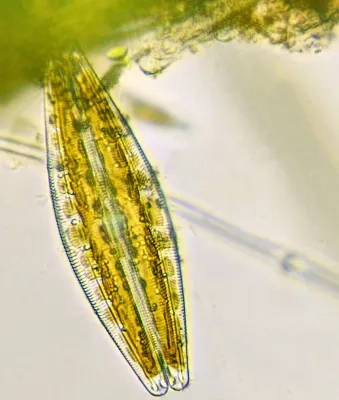
What analyses do the laboratories carry out?
- Determination of the faunal list of macro-invertebrates
- Determination of the floristic list of diatoms
- "Daphnia" test: determination of the inhibition of the mobility of Daphnia magna Straus - acute toxicity test
- Quantification of Giardia cysts and Cryptosporidium oocysts
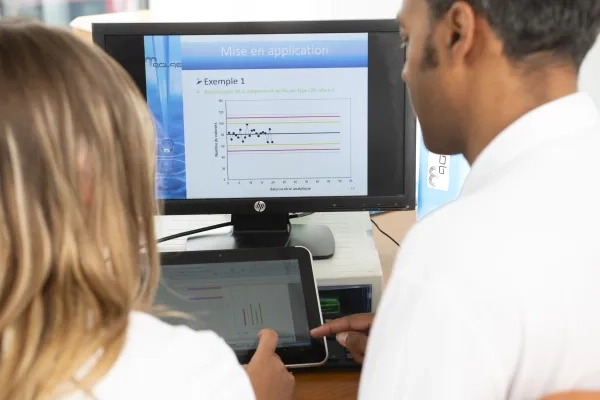
Added value of AGLAE "Biology and ecotoxicology" proficiency tests
- Macro-invertebrates in running waters: laboratories that have observed unusual taxa will be able to obtain a second expertise, which will enable them to take better account of their unique profile.
- Diatom biology index: photographic prints of 10 remarkable species will be attached to the test report. The assessment of several technicians is possible.
- Ecotoxicology: tests on fresh and waste water and the test to determine the inhibitory effect of water samples on the luminescence of Vibrio fischeri (or "Microtox" test) can be carried out on the samples.
- Protozoans: evaluation of partial and complete analysis (with resuspension in tap water) and enumeration of 'total' and 'healthy' protozoans.
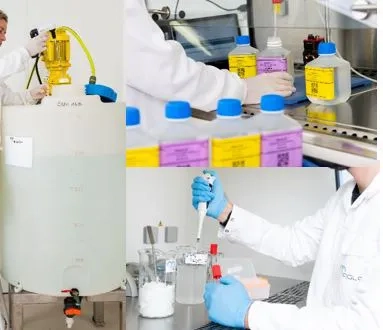
Other proficiency tests that may be of interest to you
Microbiology in cosmetics

Microbiological analysis providers and cosmetics industries carry out antimicrobial efficacy tests, the enumeration of aerobic mesophilic bacteria and yeasts/moulds and the detection of specified micro-organisms on cosmetics manufactured by AGLAE.
⇒ AGLAE provides 3 programmes "Microbiology in cosmetics".
AGLAE estimates the analytical performance of participants, enabling them to improve the quality of their measurements on cosmetic products.
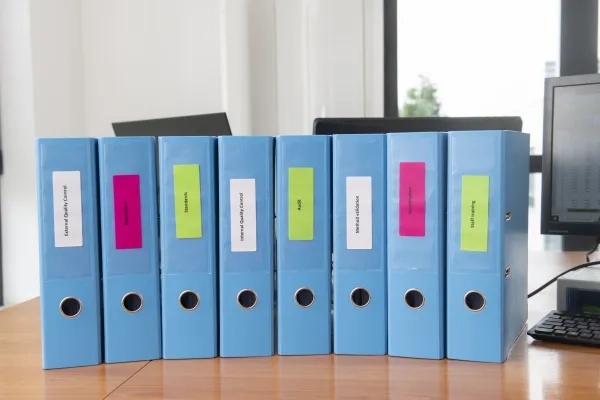
Why take part in "microbiology in cosmetics" proficiency tests?
They are carried out as part of self-inspection or regulatory controls. These proficiency tests cover some of the requirements:
- accreditation scope of microbiological analyses applied to pharmaceutical products and cosmetics (check AGLAE's accreditation No. 1-1664)
- regulatory framework linked to marketing authorisations for cosmetic products: it is necessary that microbiological analysis providers and the cosmetics industry inter-calibrate in order to achieve comparability of measurement results.
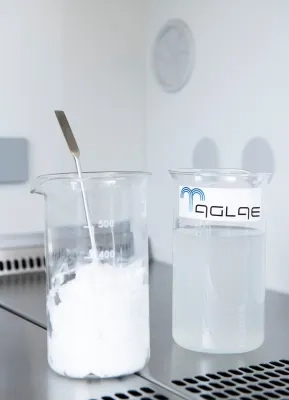
What types of samples does AGLAE propose to analyse in these intercomparisons?
AGLAE manufactures and dispatches cosmetic products such as creams and lotions suitable for microbiological testing of cosmetics.
Preservatives are used in order to
- check the effectiveness of the neutralising agent for the challenge test
- check the applicability of the method (neutralisation of the preservative/verification of the effectiveness of the neutraliser) for enumeration and detection tests
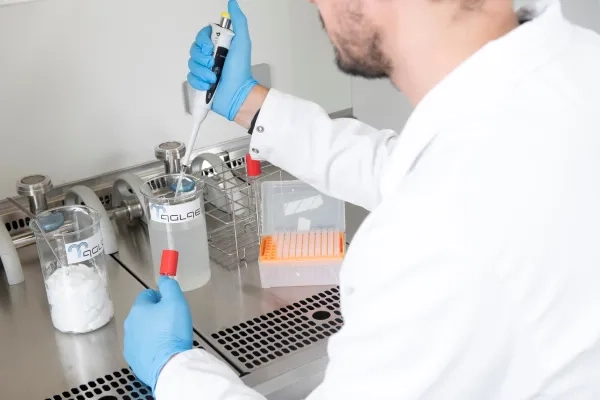
What analyses do the laboratories carry out?
- Challenge test: antimicrobial efficacy tests to assess the antimicrobial protection of cosmetic products. Laboratories determine reduction rates in accordance with ISO 11930 'Cosmetics - Microbiology - Evaluation of the antimicrobial protection of a cosmetic product' or by using their in-house analytical procedures.
- Enumeration of aerobic mesophilic bacteria and yeasts/moulds: according to ISO 21149 or 16212 respectively or equivalent method.
- Detection of specified micro-organisms: Escherichia coli, Candida albicans, Staphylococcus aureus and Pseudomonas aeruginosa according to ISO standards 21150, 18416, 22718 or 22717 respectively or equivalent method.
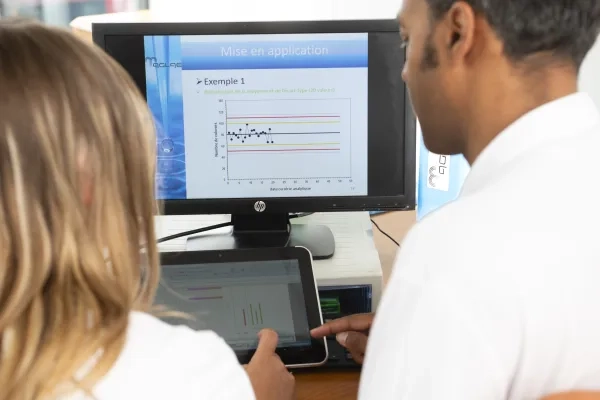
Added value of AGLAE "Cosmetics" interlaboratory tests
- AGLAE provides 'challenge test in cosmetics' interlaboratory comparisons under accreditation.
- Since its creation, AGLAE has specialised in interlaboratory tests on microbiological analyses and, since 2016, on cosmetics.
- AGLAE provides an assessment of the individual performance of each laboratory, as well as an assessment of the dispersion of results across the profession, with a view to estimating measurement uncertainty and identifying areas for improvement (assessment of the effect of practices and media suppliers).
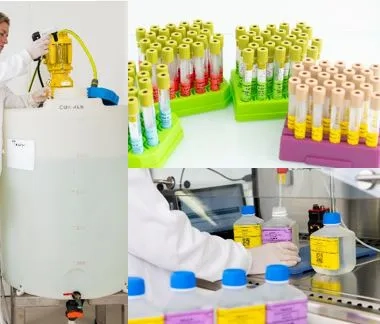
Other proficiency tests that may be of interest to you
AGLAE also provides microbiological analysis service providers the opportunity to improve the quality of their measurements:
- water microbiology
- water for medical use
- bacteriology - microscopic examination - wet mount and Gram stain (see details in "Medical biology")
See all AGLAE's tests
